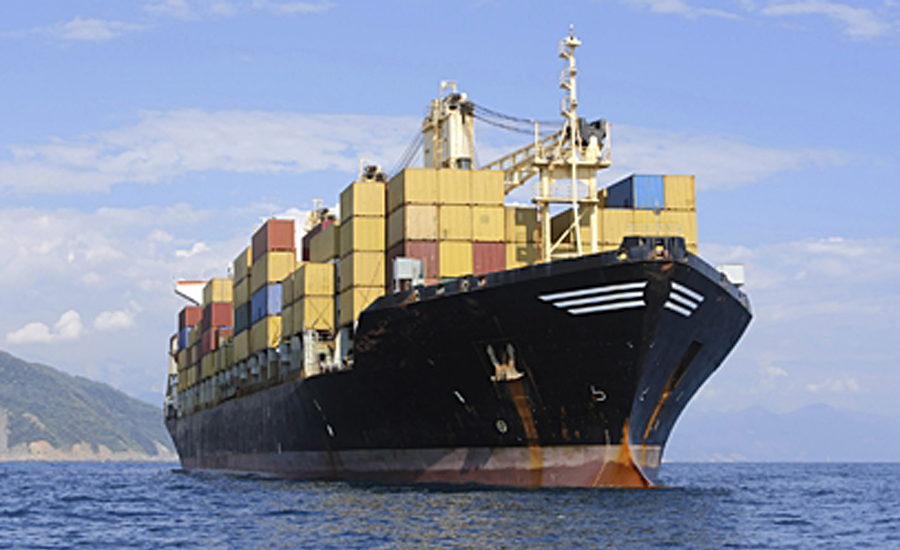The Office of the U.S. Trade Representative released its list of about 1,300 Chinese exports, worth about $50 billion annually, that it intends to target with 25 percent tariffs. The list doesn’t target apparel and footwear products directly, but it does include the machinery and tools used to produce those products.
Many of the tariffs would target the Chinese aerospace, tech and machinery industries. Others would target medical equipment, medicine and educational material, such as bookbinding equipment.
More than 80 products affected are tied directly to machinery for apparel and textiles manufacturing. The list includes textile printing machinery, carding machines for preparing textile fibers, textile spinning machines, machinery for producing textile yarns, weaving machines, circular knitting machines, flat knitting machines, embroidery machines, spindles and sewing machines. It also includes many parts that go into operating those machines.
The tariffs are designed to punish China for its theft of trade secrets, including software, patents and other technology.
The tariffs won’t go into effect immediately and may be watered down. The administration will hold a public hearing for U.S. businesses on May 15.
In response, the Chinese Ministry of Commerce on Wednesday said it plans to impose a 25 percent tariff on $50 billion worth of U.S. exports. The 106 affected products includes soybeans, aircraft, automobiles and chemicals.
In response, Matthew Shay, president and CEO of the National Retail Federation, said, “As we’ve said all along, tariffs are taxes on consumers and a drag on the nation’s economy. While we are pleased that many everyday products such as clothing and shoes are not on the list, we remain concerned that other goods such as consumer electronics and home appliances are targets. And we believe that tariffs on certain machinery will make American-made products more expensive.”
He added, “This entire process creates uncertainty and makes it difficult for retail companies that must rely on complicated global supply chains. Tariffs threaten to hurt consumers, jeopardize job creation and increase the cost of doing business here in the United States. Once again, we urge the administration to work with our trading partners to hold China accountable, advance targeted solutions and recognize the unintended consequences of protectionist trade policies.”
“We are pleased with the administration’s decision to avoid adding tariffs to U.S. imports of apparel, footwear and travel goods from China,” said American Apparel and Footwear Association president and CEO Rick Helfenbein in a statement. “At the same time, we are concerned that the list includes tariffs on machinery used in our domestic manufacturing process. This would directly raise costs on domestic manufacturers and impact our ability to grow Made in USA.”
Matt Priest, president and CEO of the FDRA, said in a statement, “I’m so proud of the effort that footwear companies, executives, employees and FDRA staff put forward to help keep footwear off President Trump’s new tariff target list. The Administration released a product list today of approximately $50 billion in goods that it plans to hit with additional 25 percent tariffs, but this list does not include any footwear tariff lines. Including footwear on the list was a very real and substantial threat to footwear workers and consumers across the country, and we are very pleased that we can take a deep sigh of relief.”
Priest noted that FDRA, along with the National Retail Federation (NRF) and the U.S. Chamber of Commerce, took several steps to make a strong case against the use of tariffs. This included a letter sent to President Trump signed by 82 footwear companies that circulated around the White House and with key policymakers, an editorial written in USA Today and continued engagement with the United States Trade Representative (USTR) and Congress.
FDRA said it plans continued engagement with the United States Trade Representative (USTR) and Congress as the Administration starts the 30-day public comment period on the current product list.
Wrote Priest, “While we take a pause to be thankful that our efforts together paid off, we still have a battle ahead. We should not be on our back foot, only talking about the need to stop new tariffs; we should be stressing the importance of lowering duties for all footwear consumers. We have been working to better tell our story in Washington and plan to launch new advocacy initiatives and outreach in the very near future.”
The U.S. Chamber of Commerce “looks forward to working with the administration throughout the comment period to make the business community’s voice heard,” Myron Brilliant, executive vice president and head of International Affairs, said in a statement. The administration is right to focus on restoring equity and fairness in trade with China but “imposing taxes on products used daily by American consumers and job creators is not the way to achieve those ends,” Brilliant said.
















